CCTV6
1905电影网
客户端

扫描下载客户端
更多好电影 手机随时看
- 片 名Longitude
- 上映时间2000年01月02日(英国)
- 导 演
查理斯·斯特里奇
-
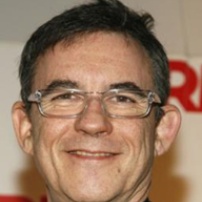
-

-

-

-
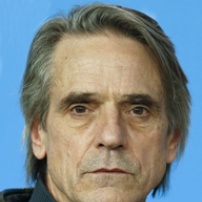
Jeremy Irons
演员
饰Rupert Gould
-

-

Gemma Jones
演员
饰Elizabeth Har...
-

-
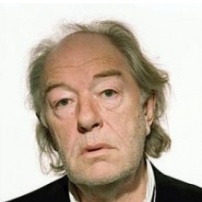
Michael Gambon
演员
饰John Harrison
-
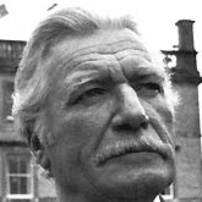
Nigel Davenport
演员
饰Sir Charles P...
-

-

Anna Chancellor
演员
饰Muriel Gould
-
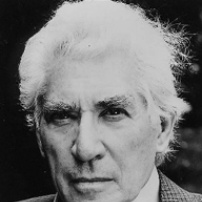
Frank Finlay
演员
饰Adm. Wagner
-

-

Andrew Scott
演员
饰John Campbell
-
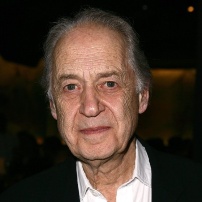
John Standing
演员
饰Capt. Proctor
-
Minister for the Navy:
[to Parliament] Honorable Members who mourn with us the recent tragic loss off the Scilly Isles of four of Her Majesty's ships, and 2,000 wretched souls therein, under the command of Admiral Sir Cloudisley Shovell, will be pleased to know that Her Majesty's government is to offer a reward -- a prize of twenty thousand pounds -- to any man offering a practicable and useful solution to the problem of finding longitude at sea. A Board of Longitude will be set up, whose sole business will be to investigate any serious suggestions, and finally, it is profoundly to be hoped, to award this prize.
John Harrison:
It's not just beautiful, it's divine: that's where the beauty lies, you see. Each note on the scale is calculated by mathematical formula, based on the circumference of a circle, you see.
Sir Charles Pelham:
Uh, almost...
John Harrison:
The step between each note is composed of larger and lesser intervals, each derived from pi. It is divine because for the first time we are listening to music as the Lord intended.
Sir Charles Pelham:
How can you tell if a clock is running 5 seconds faster, or slower?
John Harrison:
My own pendulum clock is adjusted to one second a month.
Sir Charles Pelham:
O-ho-ho, no clock can be that accurate.
John Harrison:
Mine can.
John Harrison:
Impossible, sir. Clock needs a pendulum. Can't take a pendulum to sea.
Sir Charles Pelham:
Not like you to say "impossible," John.
John Harrison:
No, sir.
Elizabeth Harrison:
You've found a way to build this sea-clock, haven't you?
John Harrison:
With God's help it might be possible. --I mean, why did He encourage me to build a perfect timepiece in the first place? So the blacksmith might start work 5 seconds earlier or later? Or was it to give us the ability to explore His creation in safety, to move without fear in the space He's given us to inhabit?
[A rival timekeeping strategy]
Sir Kenhelm Digby:
Now, it is vital to my process, Sir Edmund, that each dog be wounded with the *same knife*, as these three animals have been, under my instructions, some three days ago. Now, the animals are then to be conveyed aboard one of His Majesty's ships, uh, under the supervision of a designated officer, whose task it is to *prevent the wound from healing*. Now the knife, however, would remain here, in London, and at *precisely noon*, each day, is to be plunged into the Powder of Sympathy, which would immediately aggravate the wound, so that each dog, now matter how many thousands of miles away he may be on his particular vessel, would begin to howl... thus!
Sir Edmund Halley:
Don't touch that, boy!
William Harrison:
I didn't, sir, honest, I was just looking.
Sir Edmund Halley:
复制
复制成功
复制失败,请手动复制
-
20
复制
复制成功
复制失败,请手动复制
-
Do you know what that is?
复制
复制成功
复制失败,请手动复制
-
fed
复制
复制成功
复制失败,请手动复制
-
William Harrison:
To tell the movements of the stars.
Sir Edmund Halley:
How do you know that?
William Harrison:
It's my job at home.
Sir Edmund Halley:
You have one of these at home!?
William Harrison:
No, sir, we use Mr. Johnson next door's chimney.
Sir Edmund Halley:
And, pray, what is it that you learn from Mr. Johnson next door's chimney?
William Harrison:
The time.
Sir Edmund Halley:
How can you tell the time with a chimney?
William Harrison:
If you stand in the right place, you can see Sirius.
Sir Edmund Halley:
Sirius?
William Harrison:
It moves behind Mr. Johnso's chimney 3 minutes and 56 seconds earlier every day. We need the time for our timepiece, to tell if it's true.
Sir Edmund Halley:
And is it?
William Harrison:
It's bloody perfect, sir.
[Getting his first view of Harrison's first Sea Clock onboard ship]
Admiral:
What the bloody hell is that?
George Graham:
One second a month, sir! You're either a liar or a fool. --Who're your makers?
John Harrison:
Myself, and my brother James.
George Graham:
Really? Who were you apprenticed to?
John Harrison:
My father, as was he. I am a carpenter by profession.
George Graham:
A carpenter?!
John Harrison:
My timekeepers are made of wood. I've brought some drawings with me.
George Graham:
I'm sorry, I mistook you. This is a joke, sir, am I right? Mr. Halley seeks to derive some pleasure from this contrivance? Is he here, perhaps, hiding in a corner to watch my performance?
John Harrison:
It is I who am sorry, sir! The fault is mine. It was my impression I was here to see a clockmaker; I find myself in a toy shop by mistake! William!
[turns to leave]
George Graham:
Mr. Harrison! Summer and winter... how is it done? How is it done, the compensation?
John Harrison:
I use a pendulum of different metals that work against each other.
George Graham:
Impossible. Doesn't work. I've tried it.
John Harrison:
It is possible. It does work. I've built it.
Rupert Gould:
Sir Frank, I'm not asking to mechanically alter the Harrison machines; I just want to bring them back to their proper condition. If they're left as they are much longer, I fear they may become unrecoverable. I know my qualifications appear unlikely; I can only plead that they're no more so than Harrison's own.
Muriel Gould:
I want you to give up the clock.
Rupert Gould:
I will... when it's finished.
Muriel Gould:
Yes, I knew you'd say that. Silly of me, really.
John Harrison:
复制
复制成功
复制失败,请手动复制
-
59
复制
复制成功
复制失败,请手动复制
-
I'm afraid you must excuse me, but I should go back on deck. The air in here is...
复制
复制成功
复制失败,请手动复制
-
ff1
复制
复制成功
复制失败,请手动复制
-
John Campbell:
Poisonous? You'll get used to it. Most people don't notice it after the first couple of years.
Lieutenant John Campbell:
I sailed in the company of 961 men, sir. 203 returned to England. Of the 760 who died, only 48 were killed by enemy action.
John Harrison:
And the rest?
Lieutenant John Campbell:
Disease. Despair. We were lost: weeks on end without sight of land, fresh food, water... Although much of the time we were within 6 hours' sailing of Juan Fernandez; but we mistook our position... didn't know it. I saw more men die than any Roman emperor. Men who you'll remember, and who remembered you: John Sprague; Lieutenant Draper; the messboys, Ned and Sed, didn't even make We all heard about the Orford and how your machine performed, as we sailed hopelessly on, heaving man after man over the side.
Lieutenant John Campbell:
I thought only of one thing: a piece of twisted brass spinning. There, look. Look at its little heart still beating. I thought to myself, this'll never happen again. There'll be a machine to tell us where we are. I swore that if I lived, I'd come and find you.
John Harrison:
John, when they were dying, who did your men curse for their misfortune?
Lieutenant John Campbell:
Their God, or their admiral; when you're a foot, there's little difference.
John Harrison:
And if they'd a clock, and the clock didn't work, and the men still died... who would they curse then? When you're young, you think everything's possible. But as you grow older, you discover that it isn't.
Lieutenant John Campbell:
Well then, don't grow older, Mr. Harrison.
Lord Morton:
This society was created so that men of *science* might solve the mysteries of our planet. I would not wish to see the longitude prize stolen by a country toolmaker.
John Harrison:
You've seen how the watch has performed in the test. It's not perfect, but what if I could make it so? What if I could make a timepiece no bigger than the span of a man's hand, that could be taken to sea? Now wouldn't that be a practical solution?
[cut to 20th century]
Rupert Gould:
Harrison's fourth machine, by reason alike of its beauty and its accuracy, must take pride of place as the most famous chronometer that ever has been or ever will be made. But the journey from his third machine, which you see behind me, to his fourth (thank you), is one of the most extraordinary mysteries of horology. Faced as he was by a seemingly insuperable problem of centrifugal forces, Harrison took a daring and lateral leap. It is as though an aeronautical engineer suddenly ceased development on a new aircraft and instead adapted the technology to make his bicycle fly to France.
Captain Digges:
Mr. Harrison, it seems I owe you an apology! And may I put my marker down, here and now, for the first watch that your father makes to go on sale to the public?
William Harrison:
Taking that into account, there's a possible error in the longitude of less than half a degree.
Captain Bourke:
Let me be the first to congratulate you.
[He starts to pour Harrison a drink.]
William Harrison:
复制
复制成功
复制失败,请手动复制
-
110
复制
复制成功
复制失败,请手动复制
-
No, thank you. I'm already drunk. All my life -- my father's life -- has been for this moment. Listen: if the watch stops now, sir, so does my heart, for there will be no proof of its achievement. *Half* a degree -- we've won the prize, captain, we've won the prize!
复制
复制成功
复制失败,请手动复制
-
fa7
复制
复制成功
复制失败,请手动复制
-
Rupert Gould:
The watch beats five to the second, a slight recoil being perceptible at each beat, and goes for 30 hours. The plates are of brass, polished but not gilt. The pivot holes are jeweled as far as the third wheel, that is to say, those of the balance, staff, detente, contrate wheel, fly, fifth, fourth, and third wheels. The jewels are rubies, and the end stones diamonds. It is a masterpiece, weighing only slightly less than the brain that conceived it.
John Harrison:
It is 25 years since I first had the honor to address this board, under the chairmanship of Dr. Edmund 'Alley. And since that time I've worked with only one ambition: to satisfy your requirements as laid down by Act of Parliament, for the discovery of longitude at sea. It is with both great pride and honor, and humility, that I stand here today with my son, after his great triumph.
Dr. Bliss:
Thank you, Mr. Harrison, yes, thank you. Now. I have asked you here to inform you of the resolution of the Board: that, firstly, the *brief* calculations of Mr. William Harrison are to be sent for computation; and the instruments used in those observations are also to be sent for examination. The board will then consider these reports at a further meeting, the date of which will be announced in due course. That will be all for now, gentlemen.
John Harrison:
Sir, I am an old man, and an old man can sometimes find his senses unexpectedly weakened. There is perhaps an element of your argument that I have misunderstood, or even misheard. My watch lost... lost *one minute, 53 and a half seconds* after *81 days at sea*! As witnessed and signed in the, in the papers you have before you, which you seem so keen to put away. I have fulfilled the terms most exactly, as laid down in the Act of Queen Anne, and I demand that you consider the question of my reward.
Dr. Bliss:
Mr. Harrison, I am not a commissioner of the gaming board, here to settle some bet! I am a scientist bent on investigation of a most serious subject.
Lord Morton:
Mr. Harrison, please step forward.
[reads]
Lord Morton:
"It is the finding of this Board that the watch or timepiece created by John and William Harrison did keep correct time within the greatest accuracy required by the Act of Queen Anne as drawn up by Parliament 51 years ago."
[applause]
William Harrison:
Milord, may I have a copy of those to show my father? He has waited a long time to hear your Lordship's kind words.
Lord Morton:
In good time, Mr. Harrison. Astronomer Royal, would you be kind enough to read the fifth paragraph of the Act?
Reverend Nevil Maskelyne:
My lord.
[reads]
Reverend Nevil Maskelyne:
"And be it further enacted by the Authority aforesaid, that as soon as such Method for the Discovery of the said Longitude shall have been tried and found practicable and useful at Sea..."
Lord Morton:
Thank you. "Practicable and useful": those are the words I wish to draw to your attention. We accept the usefulness of the watch, but is it practicable? Mr. Harrison himself has never permitted this committee to examine the workings of his timepiece; I suggest to you that is because he himself has doubt about the practical use of his invention.
William Harrison:
复制
复制成功
复制失败,请手动复制
-
fb
复制
复制成功
复制失败,请手动复制
-
Milords, you must understand that my father has sought to protect his work from those who might steal his inventions. But if this board requires it, we shall submit detailed drawings of the workings of the watch, when he has received his prize.
复制
复制成功
复制失败,请手动复制
-
fd5
复制
复制成功
复制失败,请手动复制
-
Lord Morton:
Mr. Harrison, this Board does not accept restrictions placed upon its work as prescribed by Parliament! *Here* are the conditions required for fulfilment of the terms of the Act!
Reverend Nevil Maskelyne:
[reading] "First, your father must, in person, take the watch apart and explain the working of every detail to the complete satisfaction of such persons as this Board shall appoint. This shall include any experimental observations they may require. Secondly, he shall make, or cause to be made under his sole direction, two further watches of the same design, to demonstrate the practicality of their construction. And thirdly, these new watches shall be subjected to such test or tests as this Board shall require, to ascertain their usefulness under the terms of the Act." Then, and only then, will he receive his prize.
William Harrison:
Milord, my father is sick and he's 73 years old.
Lord Morton:
He has until Thursday to accept the conditions -- which, I must inform you, have been submitted to Parliament and will form part of a new amendment to this Bill.
William Harrison:
Would it be possible to set out more explicitly what the Board requires, so that we might be prepared for it?
Lord Morton:
*No, sir -- it would not*! It is not your business, sir, to limit the inquiry of this board, but to satisfy it!
John Harrison:
It is not my business, *sir*, to explain the workings of a lifetime to a group of *dog-collared university book-swallowers* who wouldn't know the difference between a *balance spring* and a *bedside pan*! The thirty years I've stood before this board, I've never once had the occasion to talk to anyone who knew anything about what I was actually doing, any sense of the mechanisms I've created! But I carried on... trusting that if I fulfilled the Act of Queen Anne, I'd get my just rewards. *I have* fulfilled that Act... I have made such a mechanism. Give me my prize, and I'll use the money to build a, a factory... make a 'undred watches, a thousand, each one the same. But I will not, as long as I've got a drop of English blood in me body, I'll not dance to the tune of a group of ignorant *schoolboys*!
Lord Morton:
Mr. Harrison, either your father signs an oath agreeing to these terms, or this matter ends here. We are prepared to pay half the award (less those monies paid out), once we are satisfied with the disclosure, and the other half when the new watches made by your father have proved their worth.
William Harrison:
Your Honor, if you would just change the wording of "experimental observations", he would, 'e would sign.
Lord Morton:
No, no, *no*, *NO*, **NO**!!! How many times do I have to say it to you *bloody people*?!! You do *not negotiate* with this Board*!!
John Harrison:
You know, the strange thing is, I want to build another one. Taking it apart and putting it together again, I can see improvements.
[The Board, having paid half the reward, takes possession of all the clocks]
John Harrison:
The machines are ready for collection. I will need a certificate from you that they're in good order.
Reverend Nevil Maskelyne:
I am not sure I'm a good judge of that, sir.
John Harrison:
For once I agree with you.
复制
复制成功
复制失败,请手动复制
-
37
复制
复制成功
复制失败,请手动复制
-
Reverend Nevil Maskelyne
复制
复制成功
复制失败,请手动复制
-
fa9
复制
复制成功
复制失败,请手动复制
-
:
I can state that they appear to be in good order; I think that will suffice.
John Harrison:
I can state as a fact they're in perfect order.
Reverend Nevil Maskelyne:
That will not be necessary.
John Harrison:
And I will need it to be understood that when they left my property that was the case. And that you are entirely responsible for their safety from this moment on!
Reverend Nevil Maskelyne:
I accept that responsibility. Now what is their normal method of transport?
William Harrison:
Boat!
Reverend Nevil Maskelyne:
Do not bandy words with me, sir.
William Harrison:
I am serious. They should go to Greenwich by barge, not some old cart like a butcher'd carry a bag of bones in!
Lord:
Well, Parliament has already been the instrument of much mischief. There is, therefore, only one court of appeal I could recommend.
William Harrison:
And that is?
Lord:
The Crown.
[The King asked to try out the new watch himself, but there was a problem...]
William Harrison:
You think the magnets were affecting the clock?
King George III:
Aye, I'm sure of it, sir. Take these out and throw them in the garden. Immediately! --There. Now we must start all over again.
William Harrison:
Your Majesty is very kind.
King George III:
Piffle, sir. I'm a scientist!
Nurse Grace Ingram:
They're going to kick you out soon, you know.
Rupert Gould:
Oh, they can't possibly. I'm feeling particularly mad at the moment.
Nurse Grace Ingram:
I don't think they cure that kind of madness here. What will you do?
Rupert Gould:
Don't know. Pitch a tent outside the gates, I suppose. Do you have any objections to life under canvas?
Nurse Grace Ingram:
Not more than... a couple of thousand.
Lieutenant John Campbell:
Gentlemen, Captain Cook is carrying a copy of Mr. Harrison's timekeeper made by Mr. Kendall, and the, um, astronomical tables of the Rev. Maskelyn. His full report will not be available until his return, but I am able to read you this extract from his log: "It would not be doing justice to Mr. Harrison and Mr. Kendall if I did not own that we have received very great assistance from this useful and valuable timepiece. The watch was used to predict the landfall of St. Helena within three miles."
Reverend Nevil Maskelyne:
This is not evidence, but anecdote!
John Harrison:
I may not be spared to complete another watch, but I've begun one. It will not, gentleman, be a copy, because I am mindful of the Act of Queen Anne, to which I've clung for over 50 years like a, like a shipwrecked sailor to a barrel -- "to be practical," and that's been my gospel and my creed. I have an idea that the heat compensation must be within the balance of the watch and not around it. And this morning I made this.
[He shows a heat-compensated balance wheel.]
John Harrison:
复制
复制成功
复制失败,请手动复制
-
12a
复制
复制成功
复制失败,请手动复制
-
I tried the idea in my first sea clock, over 40 years ago. I failed. I didn't undertand it; so much I didn't understand. A compensating balance wheel will simplify the adjustment of the machine, so others may make my watches more easily... should God grant me the time to complete my labours.
复制
复制成功
复制失败,请手动复制
-
c50
复制
复制成功
复制失败,请手动复制
-
Narrator:
John Harrison never received his reward from the Board of Longitude. It came to him by special Act of Parliament, when he was 80 years old.
[on the BBC-TV show "Brains Trust"]
Rupert Gould:
What makes a man great? A man may be great in his aims, or in his achievements, or in both, but I think that man is truly great who makes the world his debtor... who does something for the world which the world needs and which nobody before him has done or known how to do.
复制
复制成功
复制失败,请手动复制
展开
















